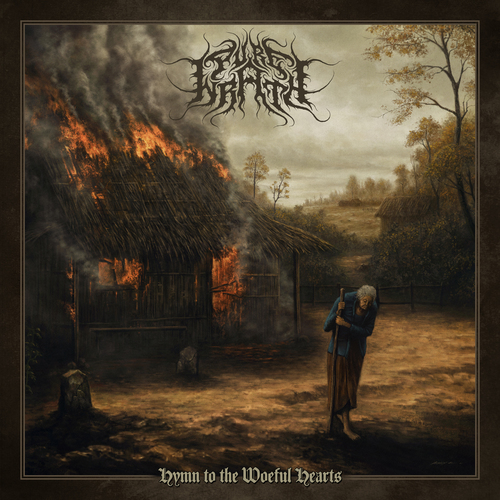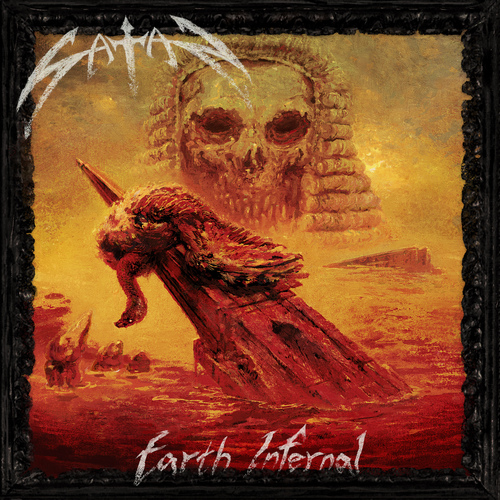The problem I had - Mason, so, sadly, FastCGI
Since the update to current Debian stable, the website for
YARRG, (a play-aid for Puzzle Pirates which I wrote some years ago), started to occasionally return Internal Server Error , apparently due to
bug(s) in some FastCGI libraries.
I was using FastCGI because the website is written in
Mason, a Perl web framework, and I found that Mason CGI calls were slow. I m using CGI - yes, trad CGI - via userv-cgi. Running Mason this way would compile the template for each HTTP request just when it was rendered, and then throw the compiled version away. The more modern approach of an application server doesn t scale well to a system which has many web applications most of which are very small. The admin overhead of maintaining a daemon, and corresponding webserver config, for each such service would be prohibitive, even with some kind of autoprovisioning setup. FastCGI has an interpreter wrapper which seemed like it ought to solve this problem, but it s quite inconvenient, and often flaky.
I decided I could do better, and set out to eliminate FastCGI from my setup. The result seems to be a success; once I d done all the hard work of writing
prefork-interp, I found the result very straightforward to deploy.
prefork-interp
prefork-interp is a small C program which wraps a script, plus a scripting language library to cooperate with the wrapper program. Together they achieve the following:
- Startup cost of the script (loading modules it uses, precompuations, loading and processing of data files, etc.) is paid once, and reused for subsequent invocations of the same script.
- Minimal intervention to the script source code:
- one new library to import
- one new call to make from that library, right after the script intialisation is complete
- change to the
#! line.
- The new initialisation complete call turns the program into a little server (a daemon), and then returns once for each actual invocation, each time in a fresh grandchild process.
Features:
- Seamless reloading on changes to the script source code (automatic, and configurable).
- Concurrency limiting.
- Options for distinguishing different configurations of the same script so that they get a server each.
- You can run the same script standalone, as a one-off execution, as well as under
prefork-interp.
- Currently, a script-side library is provided for Perl. I m pretty sure Python would be fairly straightforward.
Important properties not always satisfied by competing approaches:
- Error output (stderr) and exit status from both phases of the script code execution faithfully reproduced to the calling context. Environment, arguments, and stdin/stdout/stderr descriptors, passed through to each invocation.
- No polling, other than a long-term idle timeout, so good on laptops (or phones).
- Automatic lifetime management of the per-script server, including startup and cleanup. No integration needed with system startup machinery: No explicit management of daemons, init scripts, systemd units, cron jobs, etc.
- Useable right away without fuss for CGI programs but also for other kinds of program invocation.
- (I believe) reliable handling of unusual states arising from failed invocations or races.
Swans paddling furiously
The implementation is much more complicated than the (apparent) interface.
I won t go into all the details here (there are some
terrifying diagrams in the source code if you really want), but some highlights:
We use an
AF_UNIX socket (hopefully in
/run/user/UID, but in
~ if not) for rendezvous. We can try to connect without locking, but we must protect the socket with a separate lockfile to avoid two concurrent restart attempts.
We want stderr from the script setup (pre-initialisation) to be delivered to the caller, so the script ought to inherit our stderr and then will need to replace it later. Twice, in fact, because the daemonic server process can t have a stderr.
When a script is restarted for any reason, any old socket will be removed. We want the old server process to detect that and quit. (If hung about, it would wait for the idle timeout; if this happened a lot - eg, a constantly changing set of services - we might end up running out of pids or something.) Spotting the socket disappearing, without polling, involves use of a library capable of using
inotify (or the equivalent elsewhere). Choosing a C library to do this is not so hard, but portable interfaces to this functionality can be hard to find in scripting languages, and also we don t want every language binding to have to reimplement these checks. So for this purpose there s a little watcher process, and associated IPC.
When an invoking instance of
prefork-interp is killed, we must arrange for the executing service instance to stop reading from its stdin (and, ideally, writing its stdout). Otherwise it s stealing input from
prefork-interp s successors (maybe the user s shell)!
Cleanup ought not to depend on positive actions by failing processes, so each element of the system has to detect failures of its peers by means such as EOF on sockets/pipes.
Obtaining prefork-interp
I put this new tool in my chiark-utils package, which is a collection of useful miscellany. It s available
from git.
Currently I make releases by
uploading to Debian, where prefork-interp has just hit Debian unstable, in chiark-utils 7.0.0.
Support for other scripting languages
I would love Python to be supported. If any pythonistas reading this think you might like to help out, please get in touch. The specification for the protocol, and what the script library needs to do, is
documented in the source code
Future plans for chiark-utils
chiark-utils as a whole is in need of some tidying up of its build system and packaging.
I intend to try to do some reorganisation. Currently I think it would be better to organising the source tree more strictly with a directory for each included facility, rather than grouping compiled and scripts together.
The Debian binary packages should be reorganised more fully according to their dependencies, so that installing a program will ensure that it works.
I should probably move the official git repo from my own git+gitweb to a forge (so we can have MRs and issues and so on).
And there should be a lot more testing, including Debian autopkgtests.
edited 2022-08-23 10:30 +01:00 to improve the formatting
comments
 The long running British1 SF Magazine Interzone has a new home and new editor,
Gareth Jelley, starting with issue 294.
It's also got a swanky new format ("JB6"): a perfect-bound, paperback novel
size, perfect for fitting into an oversize coat or jeans pocket for reading
on the train.
I started reading Interzone in around 2003, having picked up an issue
(#176) from Feb 2002 that was languishing on the shelves in Forbidden Planet.
Once I discovered it I wondered why it had taken me so long.
That issue introduced me to Greg Egan. I bought a number of back issues on
eBay, to grab issues with stories by people including Terry Pratchett, Iain
Banks, Alastair Reynolds, and others.
A short while later in early 2004, after 22 years, Interzone's owner and
editorship changed from David Pringle to Andy Cox and TTA Press. I can remember
the initial transition was very jarring: the cover emphasised expanding into
coverage of Manga, Graphic Novels and Video Games (which ultimately didn't
happen) but after a short period of experimentation it quickly settled down
into a similarly fantastic read. I particularly liked the move to a smaller,
perfect-bound form-factor in 2012.
I had to double-check this but I'd been reading IZ throughout the TTA era and
it lasted 18 years! Throughout that time I have discovered countless fantastic
authors that I would otherwise never have experienced. Some (but by no means
all) are Dominic Green, Daniel Kaysen, Chris Beckett, C cile Cristofari, Aliya
Whiteley, Tim Major, Fran oise Harvey, Will McIntosh.
Cox has now retired (after 100 issues and a tenure almost as long as Pringle)
and handed the reins to Gareth Jelley/MYY Press, who have published their first
issue, #294.
Jelley is clearly putting a huge amount of effort into revitalizing the
magazine. There's a new homepage at interzone.press
but also companion internet presences: a plethora of digital content at
interzone.digital, Interzone
Socials (a novel idea), a Discord server, a podcast,
and no doubt more.
Having said that, the economics of small magazines have been perilous for a long
time, and that hasn't changed, so I think the future of IZ (in physical format at
least) is in peril. If you enjoy short fiction, fresh ideas, SF/F/Fantastika; why
not try a subscription to Interzone, whilst you still
can!
The long running British1 SF Magazine Interzone has a new home and new editor,
Gareth Jelley, starting with issue 294.
It's also got a swanky new format ("JB6"): a perfect-bound, paperback novel
size, perfect for fitting into an oversize coat or jeans pocket for reading
on the train.
I started reading Interzone in around 2003, having picked up an issue
(#176) from Feb 2002 that was languishing on the shelves in Forbidden Planet.
Once I discovered it I wondered why it had taken me so long.
That issue introduced me to Greg Egan. I bought a number of back issues on
eBay, to grab issues with stories by people including Terry Pratchett, Iain
Banks, Alastair Reynolds, and others.
A short while later in early 2004, after 22 years, Interzone's owner and
editorship changed from David Pringle to Andy Cox and TTA Press. I can remember
the initial transition was very jarring: the cover emphasised expanding into
coverage of Manga, Graphic Novels and Video Games (which ultimately didn't
happen) but after a short period of experimentation it quickly settled down
into a similarly fantastic read. I particularly liked the move to a smaller,
perfect-bound form-factor in 2012.
I had to double-check this but I'd been reading IZ throughout the TTA era and
it lasted 18 years! Throughout that time I have discovered countless fantastic
authors that I would otherwise never have experienced. Some (but by no means
all) are Dominic Green, Daniel Kaysen, Chris Beckett, C cile Cristofari, Aliya
Whiteley, Tim Major, Fran oise Harvey, Will McIntosh.
Cox has now retired (after 100 issues and a tenure almost as long as Pringle)
and handed the reins to Gareth Jelley/MYY Press, who have published their first
issue, #294.
Jelley is clearly putting a huge amount of effort into revitalizing the
magazine. There's a new homepage at interzone.press
but also companion internet presences: a plethora of digital content at
interzone.digital, Interzone
Socials (a novel idea), a Discord server, a podcast,
and no doubt more.
Having said that, the economics of small magazines have been perilous for a long
time, and that hasn't changed, so I think the future of IZ (in physical format at
least) is in peril. If you enjoy short fiction, fresh ideas, SF/F/Fantastika; why
not try a subscription to Interzone, whilst you still
can!


 With the end of the year approaching fast, I thought putting my year in
retrospective via music would be a fun thing to do.
Albums
In 2022, I added 51 new albums to my collection nearly one a week! I listed
them below in the order in which I acquired them.
I purchased most of these albums when I could and borrowed the rest at
libraries. If you want to browse though, I added links to the album covers
pointing either to websites where you can buy them or to Discogs when digital
copies weren't available
With the end of the year approaching fast, I thought putting my year in
retrospective via music would be a fun thing to do.
Albums
In 2022, I added 51 new albums to my collection nearly one a week! I listed
them below in the order in which I acquired them.
I purchased most of these albums when I could and borrowed the rest at
libraries. If you want to browse though, I added links to the album covers
pointing either to websites where you can buy them or to Discogs when digital
copies weren't available




























































 So, since I registered the URL for serving the unofficial Debian
images for the Raspberry computers,
So, since I registered the URL for serving the unofficial Debian
images for the Raspberry computers,  Then, I set up the build on my own server, hosted on my Dreamhost
account and forgot about it for many months. Last month, there was
a
Then, I set up the build on my own server, hosted on my Dreamhost
account and forgot about it for many months. Last month, there was
a  As it is now known, the freenode IRC network has been taken over by a Trumpian wannabe korean royalty bitcoins millionaire. To make a long story short, the former freenode head of staff secretly "sold" the network to this person even if it was not hers to sell, and our lawyers have advised us that there is not much that we can do about it without some of us risking financial ruin. Fuck you Christel, lilo's life work did not deserve this.
What you knew as freenode after 12:00 UTC of May 19 will be managed by different people.
As I have no desire to volunteer under the new regime, this marks the end of my involvement with freenode. It had started in 1999 when I encouraged the good parts of
As it is now known, the freenode IRC network has been taken over by a Trumpian wannabe korean royalty bitcoins millionaire. To make a long story short, the former freenode head of staff secretly "sold" the network to this person even if it was not hers to sell, and our lawyers have advised us that there is not much that we can do about it without some of us risking financial ruin. Fuck you Christel, lilo's life work did not deserve this.
What you knew as freenode after 12:00 UTC of May 19 will be managed by different people.
As I have no desire to volunteer under the new regime, this marks the end of my involvement with freenode. It had started in 1999 when I encouraged the good parts of  A common way to establish an IPsec tunnel on Linux is to use an
A common way to establish an IPsec tunnel on Linux is to use an  A possible configuration between
A possible configuration between  Here is my monthly update covering what I have been doing in the free software world in August 2017 (
Here is my monthly update covering what I have been doing in the free software world in August 2017 (